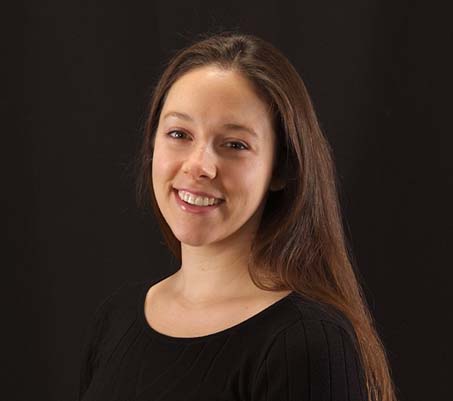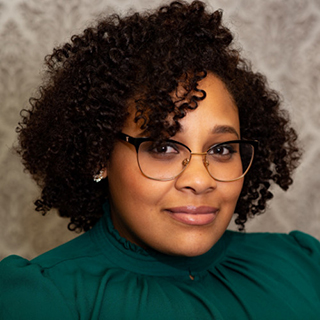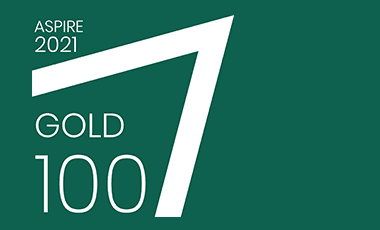Social Justice Hub
Commitment
The action we are taking
An equitable and fair approach to content accessibility
As one of the largest global publishers of academic content, we take it as our responsibility to ensure accessibility is central to our publishing, to improve learning outcomes and to ensure a more equitable and fair approach to content accessibility.
“According to the World Health Organization, more than 1 billion people worldwide have disabilities.“
These could be visible or invisible disabilities and many people will benefit from digital accessibility and assistive technologies. Often, when we talk about digital accessibility, there is a focus on blind persons or those with a visual or print impairment. However, the list is much broader and includes people who are deaf or hard of hearing, people with motor impairments and people who have cognitive disabilities such as autism, attention deficit, dyslexia, and dyscalculia, among others.
In 2019, we launched the Accessibility Working Group (AWG) to support changing customer and legal requirements throughout our publishing environment: eBooks, journals, and websites. The AWG is comprised of colleagues from across the organization who share a goal to make accessible content available, with a firm focus on customer experience, understanding our customers’ needs and driving changes to provide the best quality content in the most accessible way for everyone.
We recognize that we have more work to do, so customers can expect further benefits as we evolve our platforms and products to provide more detailed accessibility metadata and the improved and increased use of alt text and accessibility features within our products.

Brianna Walker, Head of Content Management
Our achievements
- Implemented quarterly updates to our eBook Specifications, which are supplied to conversion vendors. These specifications contain instructions for WCAG-compliant.
- Published an Accessibility Statement in 2020, which received a Silver ASPIRE score of 71% in January 2021, placing us in the top 3 publishers for accessibility statements.
- Awarded the Global Certified Accessible™ (GCA) certification by Benetech, a non-profit organization that operates Bookshare, which is the largest library of accessible eBooks in the world.
- Reworked internal processes to distribute accessibility metadata using ONIX to third party eBook sellers, like VitalSource. An example is Bitcoin and Blockchain.
- Introduced the text to speech software ReadSpeaker on Taylor & Francis Online, our Journals platform.
- Published companion website guidelines to ensure ancillary materials are accessible.
- Conducted audits of more than 1,000 existing companion websites, in order to create a development plan and deprecate outdated sites.
- Created more accessible companion website templates and working with editors to ensure content being added to the site is accessible.
- Integrated an alternative format request process for Journal articles in 2019. The Books program launched in 2010.
- Published VPATs for product platforms which were previously missing them.
- Recently published a new accessibility statement for our eBooks platform, taylorfrancis.com.
Developing our Colleague Resource Groups (CRGs)
A Q&A with Naomi Barrett,
VP of Diversity, Equity and Inclusion
Naomi Barrett, shares more about her work with Colleague Resource Groups (CRGs). She discusses how employees are benefitting from CRGs now and what her hopes are for the future.
Colleague Resource Groups (CRGs), also called Employee Resource Groups (ERGs), are employee-led organizations at companies where individuals who share a commonality can meet up, whether that commonality be gender, ethnicity, sexual orientation, or anything in which they have a shared identity or interest. Their aim is to create a safe space to support people and their career development, as well as, in some cases, provide a unified front where they can lobby for change at their organizations. 90% of Fortune 500 companies have ERGs; that is not surprising, because ERGs/CRGs have shown to improve diversity at organizations, and investors are increasingly demanding greater corporate accountability, which often includes diversity information.
Leah Kinthaert: Why do you think Colleague Resource Groups are important?
Naomi Barrett: Colleague Resource Groups allow colleagues with similar interests, backgrounds, or demographics to come together for a common purpose. From a colleague perspective, it increases the volume of their collective voices within the organization and also allows colleagues to meet and network with colleagues around the world. From a business perspective, there are so many benefits. We use our CRGs as another way to listen to our colleagues and engage with them on the issues that matter most to them.
We also use them heavily to help identify gaps within our organization. They have helped develop policies, learning programs, recruitment strategies etc.
CRGs are going to be integral in looking at how we continue to broaden the diversity of our colleague base, but also in how we integrate diversity into more of our business operations.
Leah: Can you tell me a little about the history of CRGs at Taylor & Francis – how did they evolve?
Naomi: I believe the first true CRG at Taylor & Francis group was Women in Publishing (WiP), which was started in 2017. Initially begun in the UK, WiP has grown to add in global chapters over the past 4 years. They have hosted great programming to showcase women in leadership, provide discussion and resources on topics impacting women in the workplace and publishing specifically, and they offer great networking opportunities.
I think the story here really is in thinking about the future of CRGs at Taylor & Francis. This article is timely since we have just launched some tools and resources on our DE&I intranet page to support colleagues in creating new CRGs within the business. We truly do recognize the benefits of having our colleagues come together and create spaces to collaborate in areas important to them.
We’ve developed templates to support the startup of new CRGs. Our newly formed DE&I team and global DE&I network are now in place to support the formation of new CRGs as well. We would like to see a marked increase in the number of colleague-driven groups as we go into 2022.

Naomi Barrett, VP of Diversity, Equity and Inclusion
“We use our CRGs as another way to listen to our colleagues and engage with them on the issues that matter most to them.“
Accessibility is a worthwhile journey
Accessibility is a journey, but it’s a worthwhile one. A good place to start is to bring together like-minded colleagues who want to support accessibility across departments, learn from others in the industry by joining the Publishers Association Accessibility Action Group, advance your knowledge through training, and most importantly, listen to your customers. Brianna Walker, Head of Content Management and co-founder of AllInforma Illuminate, a colleague-led network championing colleagues and customers with disabilities and conditions, shares the company is working to make sure Taylor & Francis content is accessible to all.



